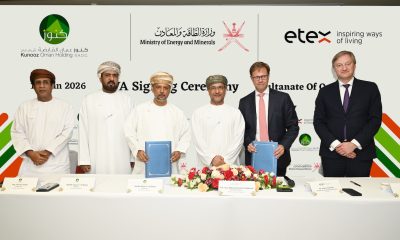Energy
Oman’s regular grade petrol production surges ahead
The Sultanate recorded a significant 127.3% year-on-year increase in the production of regular (90) petrol during the first quarter of the current year with output surging to 1.72 million barrels compared with 758,900 barrels produced last year, according to the latest data released by the National Centre for Statistics and Information (NCSI).

The Sultanate recorded a significant 127.3% year-on-year increase in the production of regular (90) petrol during the first quarter of the current year with output surging to 1.72 million barrels compared with 758,900 barrels produced last year, according to the latest data released by the National Centre for Statistics and Information (NCSI). However, Super (95) petrol output logged a decline of 11.1% over the period to 4.62 million bbl, from 5.20 million bbl in 2015.
The NCSI bulletin indicated that during the first three months, the total petroleum output (petrol, jet fuel, oils, LPG, propylene, naphtha, long residual and others taken together) from Oman Oil Refineries and Petroleum Industries Co. (Orpic) registered a 6.1% fall compared with last year, with production decreasing to 18.94 million bbl, compared with 20.16 million achieved in 2015.
There has been a marked increase of 46.4% in the production of jet fuel (aviation fuel) by the end of March 2016, which surged to 1.77 million bbl from 1.21 million bbl in the same period of 2015.
Fuel oil output, on the other hand, declined 40.3% to hit 258,400 bbl as against 432,900 bbl last year. Gas oil output too suffered a production fall of 14.6% to touch 4.34 million bbl compared with 5.08 million in Q1, 2015.
Meanwhile, LPG (liquefied petroleum gas) production in the first quarter went down 34.8% to 521,900 bbl from 800,800 bbl last year, same quarter.
In the case of long residual, the fall in output was 6.7%, with production touching 4.62 million bbl as against 4.96 million bbl a year ago.
SR Naphtha fell by 6.5% to 783,700 bbl as against 838,200 bbl while propylene production decreased by 63.8% to 198,700 bbl from last year’s 548,400 bbl.
Other products showed a 76.2% slump in output over the first three months compared with last year figures.
Last year, the aggregate output by Orpic of regular and super petrol stood at 2.02 million bbl and 23.34 million bbl respectively. Interestingly, last year regular petrol accounted for just 2% of Orpic’s total petroleum products output while super petrol had a share of 28%.
-

 News2 months ago
News2 months agoAI Security Conference 2025 Hosted by Securado Highlights the Changing Cybersecurity Landscape
-

 Insurance1 month ago
Insurance1 month agoSupporting Community Wellness: Liva Insurance Sponsors Muscat Marathon 2026 with Free Health Checkups
-

 Interviews1 month ago
Interviews1 month agoEXCLUSIVE INTERVIEW: TLS Rebranding Marks Strategic Leap Toward Innovation, Sustainability & Growth
-

 Insurance1 month ago
Insurance1 month agoLiva Insurance Supports Community Wellness Through “Experience Oman – Muscat Marathon 2026”
-

 Investment2 weeks ago
Investment2 weeks agoLalan Inaugurates Its First Overseas Manufacturing Facility, Marking Sri Lanka’s First Investment in SOHAR Freezone
-

 Construction3 weeks ago
Construction3 weeks agoInternational Heavy Equipment hosts Open Day at its Refurbished Facility in Sohar Industrial Area
-

 Banking & Finance1 month ago
Banking & Finance1 month agoA New Platform for SME Growth: Oman Arab Bank Unveils Tumouhi
-

 News3 weeks ago
News3 weeks agoKunooz Oman Holding Partners with Belgian company Etex for Local Gypsum-Based Business Development






























You must be logged in to post a comment Login